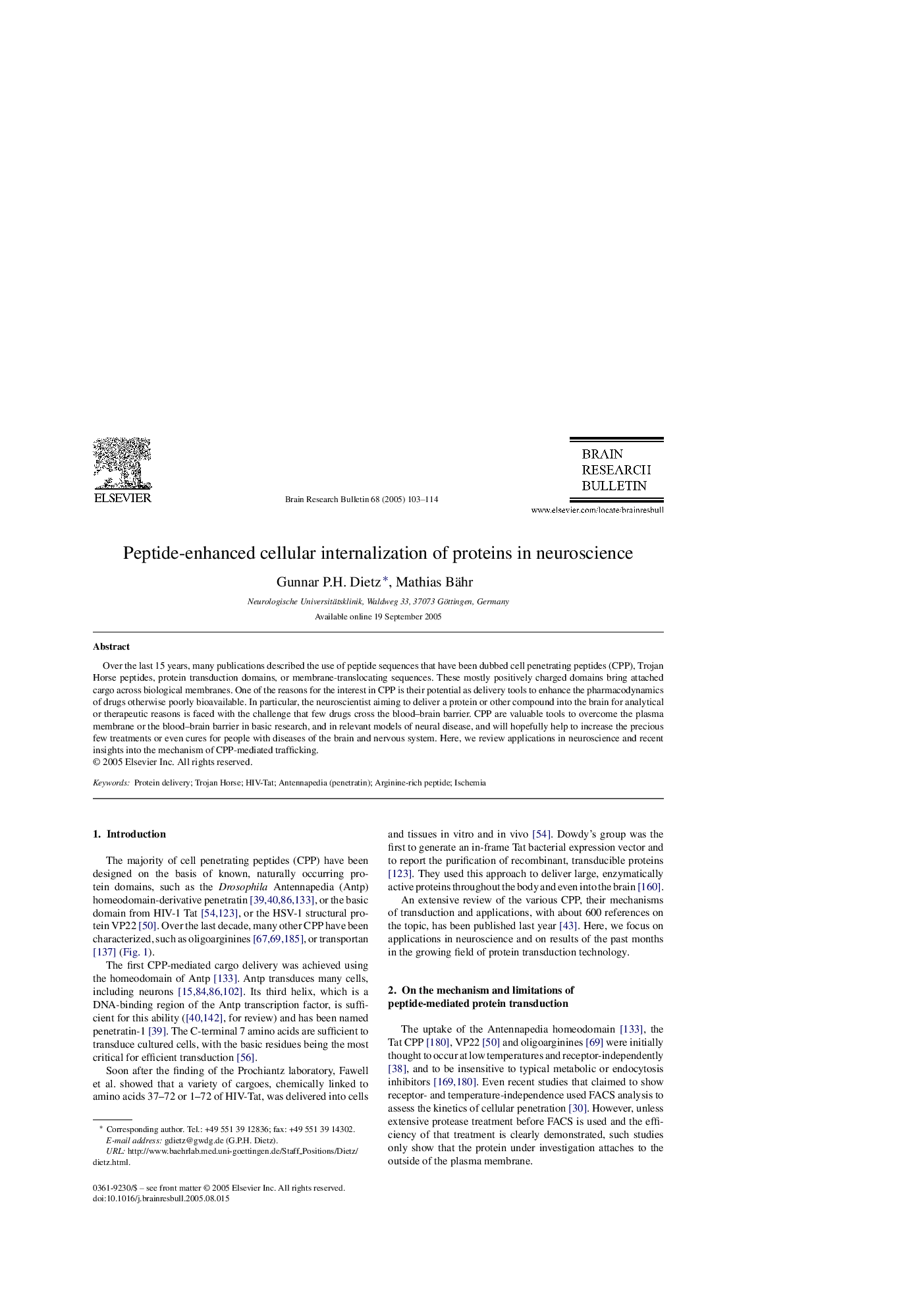| Article ID | Journal | Published Year | Pages | File Type |
|---|---|---|---|---|
| 9409493 | Brain Research Bulletin | 2005 | 12 Pages |
Abstract
Over the last 15 years, many publications described the use of peptide sequences that have been dubbed cell penetrating peptides (CPP), Trojan Horse peptides, protein transduction domains, or membrane-translocating sequences. These mostly positively charged domains bring attached cargo across biological membranes. One of the reasons for the interest in CPP is their potential as delivery tools to enhance the pharmacodynamics of drugs otherwise poorly bioavailable. In particular, the neuroscientist aiming to deliver a protein or other compound into the brain for analytical or therapeutic reasons is faced with the challenge that few drugs cross the blood-brain barrier. CPP are valuable tools to overcome the plasma membrane or the blood-brain barrier in basic research, and in relevant models of neural disease, and will hopefully help to increase the precious few treatments or even cures for people with diseases of the brain and nervous system. Here, we review applications in neuroscience and recent insights into the mechanism of CPP-mediated trafficking.
Related Topics
Life Sciences
Neuroscience
Cellular and Molecular Neuroscience
Authors
Gunnar P.H. Dietz, Mathias Bähr,
